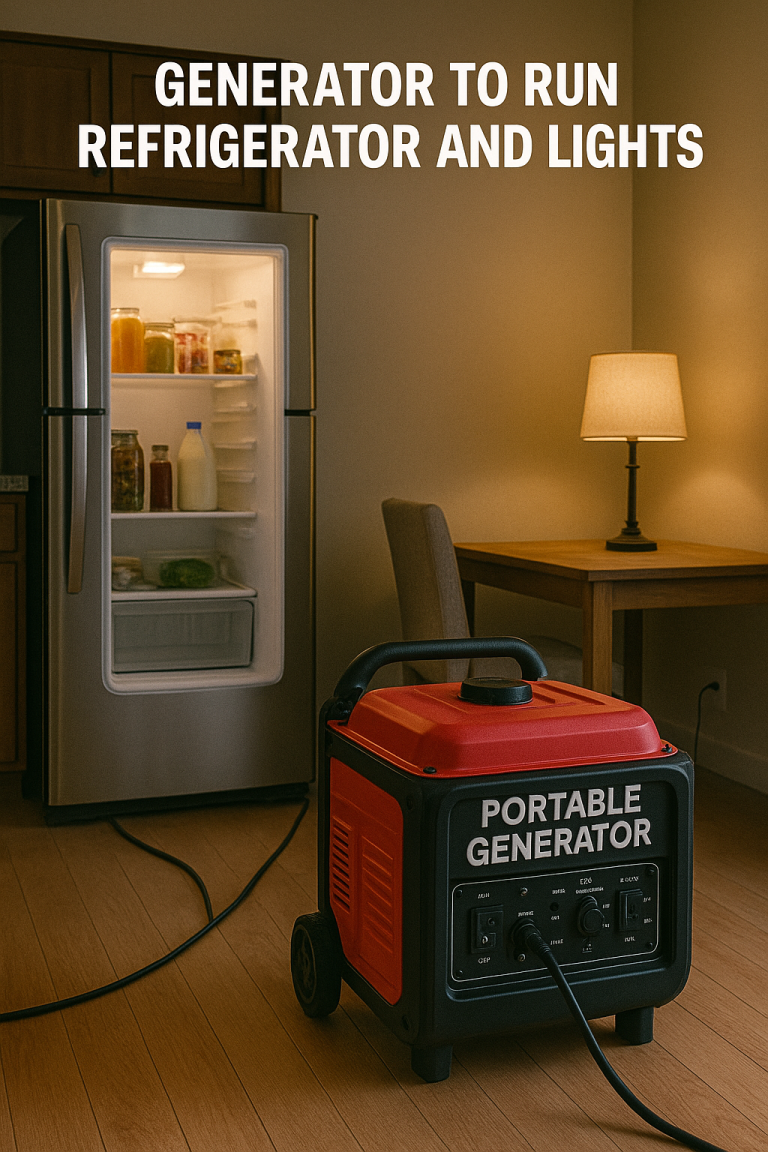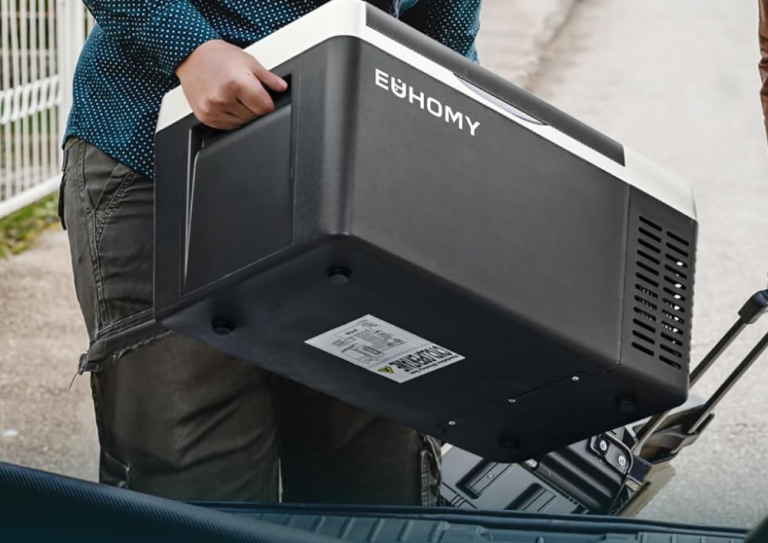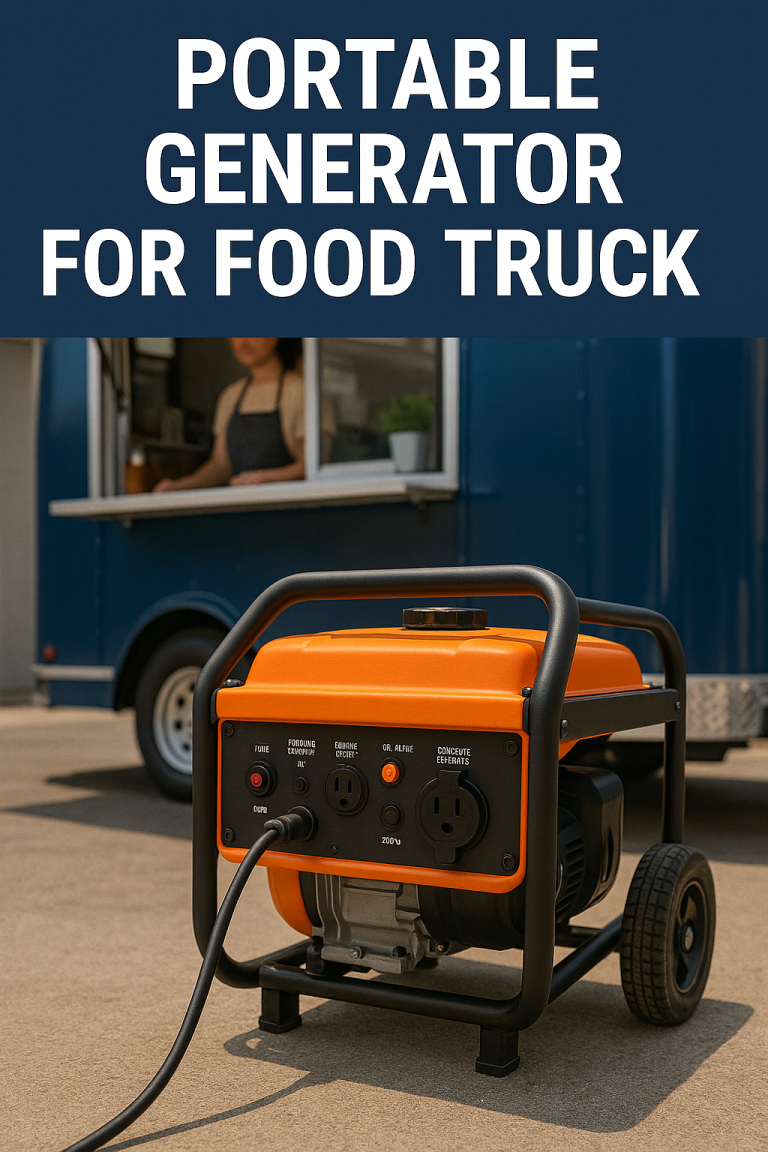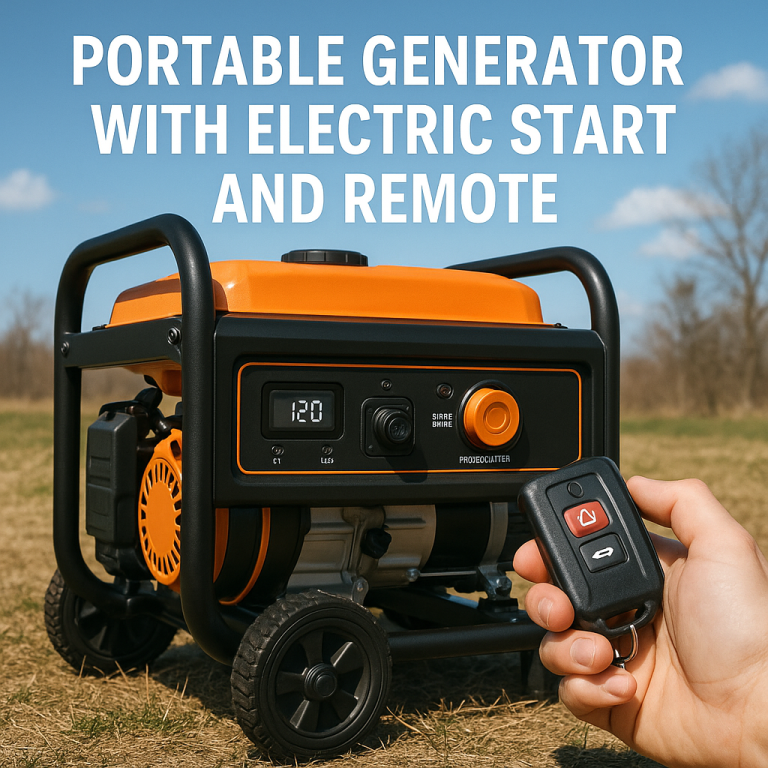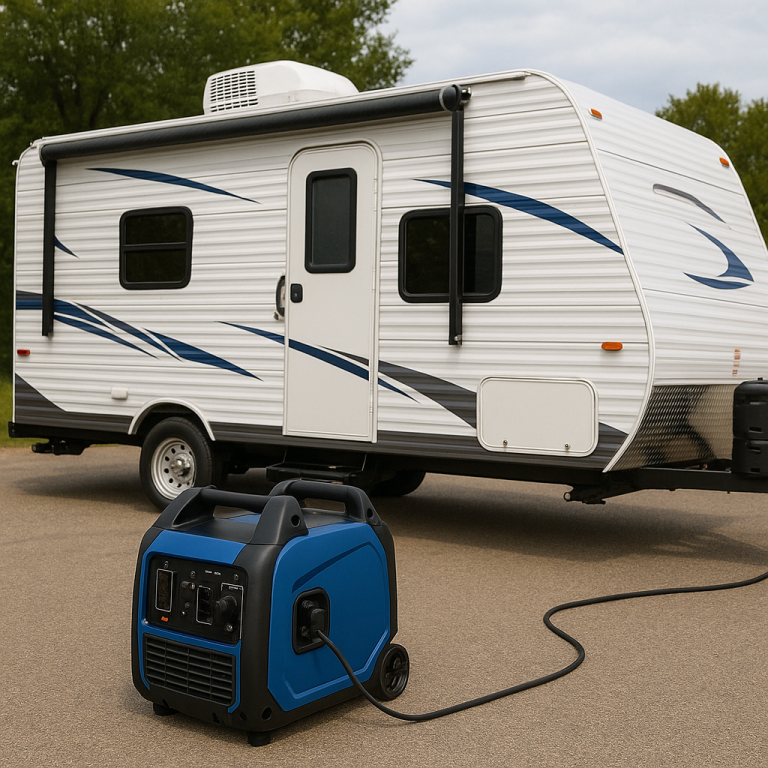Generator for Travel Trailer Air Conditioner – Stay Cool Wherever You Park
When summer hits and the heat is on, your travel trailer’s air conditioner becomes more than a luxury — it’s a necessity. But if you’re camping off-grid, boondocking, or just don’t have shore power, you’ll need a reliable generator to run your travel trailer’s air conditioner.
Not all generators are up to the task. Air conditioners are some of the most power-hungry appliances in any trailer. Choosing the right generator ensures you stay comfortable without overloads, shutdowns, or overheating.
In this guide, we’ll cover exactly what you need to power your travel trailer AC, what features to look for in a generator, and how to use your setup safely and efficiently on the road.
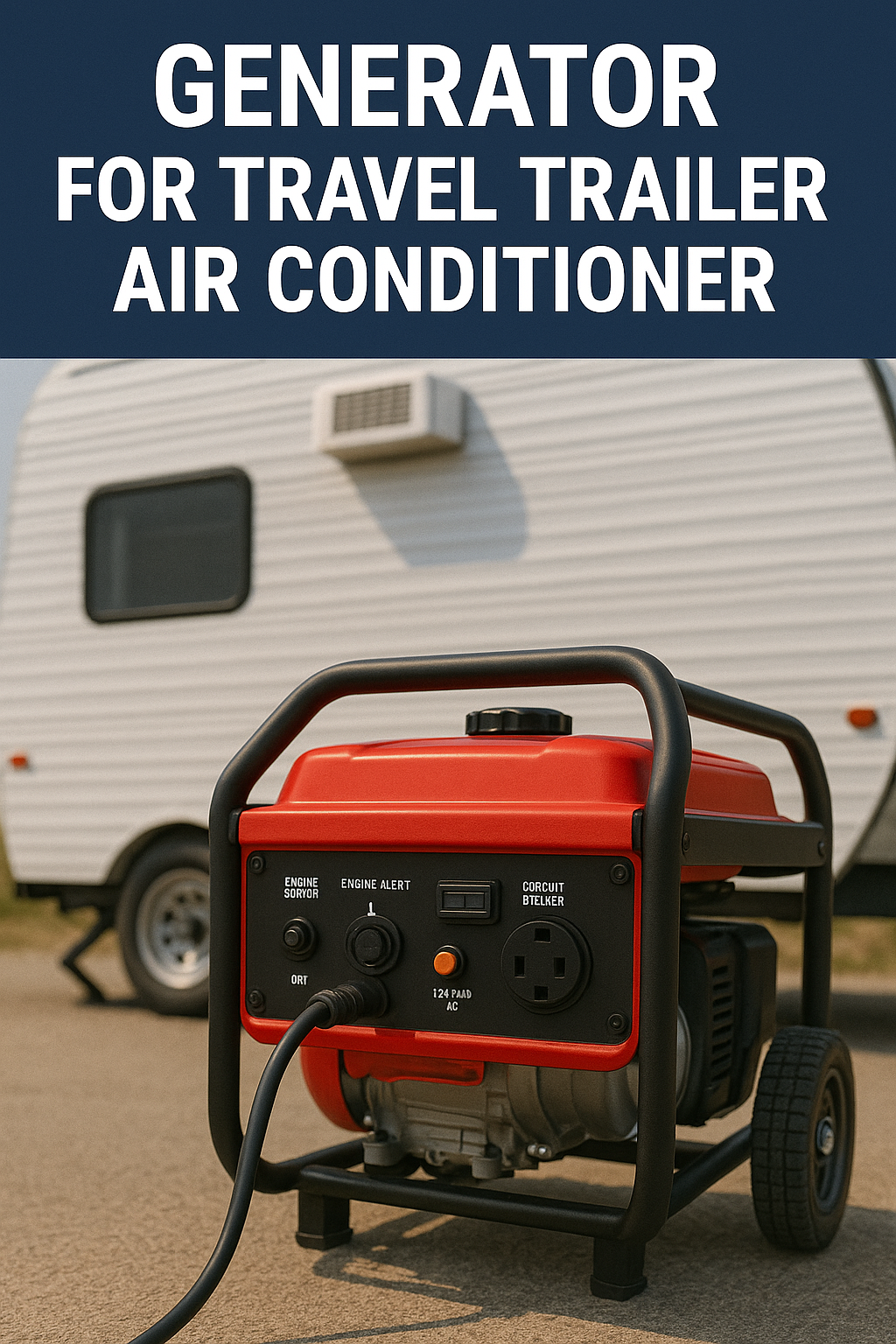
Why You Can’t Use Just Any Generator
Air conditioners draw a lot of power, especially when they first start up. While you might get away with a small inverter generator for lights or charging phones, your AC unit needs a lot more wattage — and that changes everything.
The typical travel trailer AC unit:
- Ranges from 13,500 to 15,000 BTU
- Requires 1800 to 2000 running watts
- May need up to 3000+ watts to start
If your generator can’t handle that initial startup surge, it could trip, shut down, or fail to power the AC at all.
That’s why it’s critical to choose a generator with enough surge and running watts, ideally with inverter technology and RV-friendly features.
How Many Watts Do You Need?
Start by checking your air conditioner’s BTU rating. Most travel trailers have a 13,500 BTU or 15,000 BTU unit, and that’s the number you’ll base your generator needs on.
Here’s a general breakdown:
- 13,500 BTU AC: Needs around 2800 to 3000 starting watts and 1500 to 1800 running watts
- 15,000 BTU AC: Needs around 3000 to 3500 starting watts and 1800 to 2000 running watts
To comfortably run your AC and maybe power a few lights or charge a phone at the same time, look for a generator with at least:
- 3500 starting watts
- 3000 running watts
If you want to power additional appliances like a microwave, coffee maker, or fridge simultaneously, consider a generator with 4000 to 5000 watts or more.
Best Type of Generator for Travel Trailer AC Units
Inverter Generators
Inverter generators are ideal for powering RV air conditioners because they:
- Produce clean, stable electricity for sensitive electronics
- Are much quieter than traditional open-frame generators
- Adjust engine speed based on load, making them more fuel-efficient
- Are often compact and portable
Look for a 3000 to 4500-watt inverter generator with a 30-amp RV outlet, and you’ll be set for most trailer AC units.
Dual-Fuel Generators
Want more flexibility? A dual-fuel generator lets you run on gasoline or propane, giving you longer runtime and the ability to fuel up even when gas stations are scarce.
These are excellent for extended off-grid stays or as emergency backups. Just be sure to check the wattage output on both fuel types — propane often produces slightly less power than gasoline.
Features to Look for in a Generator for Travel Trailer AC
Not all generators are created equal. When your main goal is powering an air conditioner in a travel trailer, here’s what really matters:
High Starting Watts
Your generator must cover the initial surge when your AC compressor kicks on. Always check that the starting wattage exceeds your AC’s startup requirement — or better yet, leave some extra overhead.
30-Amp RV Outlet
Many travel trailers use 30-amp service. A generator with a TT-30R RV outlet lets you plug in directly with your shore power cable — no adapters, no hassle.
Quiet Operation
Generators running your AC will likely be on for hours. Look for models that run under 60 decibels at 25% load to stay campground-friendly and avoid disturbing your own peace.
Long Runtime
You’ll want your generator to last at least 8 to 10 hours on a tank — especially on hot nights when you’re running the AC through bedtime. Models with eco mode or large fuel tanks perform best here.
Fuel Efficiency
Generators with eco-throttle technology automatically adjust engine speed to match the load, reducing fuel consumption and extending runtime.
Portability
If you’ll be storing or moving your generator frequently, choose one with wheels and a folding handle, especially if it weighs over 75 lbs.
What About Soft Start Devices?
A soft start device or easy start module is a small unit installed in your AC system that reduces the amount of power needed to start it up.
With a soft start installed, you may be able to:
- Run a 15,000 BTU AC on a 3000-watt inverter generator
- Avoid tripping breakers when other appliances are used simultaneously
- Reduce strain on your generator and extend its life
It’s an excellent upgrade for RVers who already own a smaller generator and want to avoid buying a larger, heavier unit.
Generator Safety Tips for RV Air Conditioner Use
Running a generator around your travel trailer requires care. Here’s how to keep your setup safe:
- Always run the generator outdoors, away from doors, windows, or vents
- Position it at least 20 feet from your trailer
- Never use it inside your RV, even partially enclosed spaces
- Keep a carbon monoxide detector inside the trailer
- Let it cool down before refueling
- Use heavy-duty RV-rated cords if plugging in without a transfer switch
Can You Use Two Small Generators Instead?
Yes — this is called a parallel generator setup. If you have two 2000-watt inverter generators with parallel capability, you can combine them to produce 4000+ watts of power.
This setup is popular among RVers because:
- Each unit is smaller and easier to carry
- You can use just one for lighter loads
- They’re quieter when running at lower loads
- You get redundancy in case one fails
Just make sure both units are identical models from the same brand, and use the correct parallel kit for safe operation.
Final Thoughts: Power Your Trailer AC with Confidence
Your air conditioner is your lifeline to comfort in a travel trailer — and a dependable generator to run your travel trailer air conditioner gives you the freedom to stay cool wherever you park.
To recap:
- Know your AC’s starting and running wattage
- Choose a generator with at least 3500 starting watts
- Prioritize inverter models for quiet, efficient power
- Consider soft start devices to reduce startup load
- Use proper safety procedures every time you run your unit
With the right generator in your toolkit, you can confidently camp in the heat, stay off-grid longer, and enjoy your RV lifestyle without compromise.

